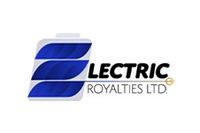Cambridge researchers have found a way to produce hydrogen from water using an inexpensive cobalt catalyst.
The scientists’ work is also noteworthy because the cobalt catalyst will work in conditions useful to industry. That means the catalyst uses fresh water, tolerates oxygen in the atmosphere and runs at room temperature.
Hydrogen is currently produced from fossil fuels, creating the greenhouse gas carbon dioxide as a by-product. Hence it is neither renewable nor clean. “A green process such as sunlight-driven water splitting is therefore required to produce ‘green and sustainable [hydrogen],’” the University of Cambridge said in a statement.
The cobalt catalyst comes in handy because until now scientists have had a tough time finding an efficient and inexpensive catalyst that can function under real-world conditions — using pH neutral water, surrounded by oxygen and at room temperature. Currently, highly-efficient catalysts such as platinum are too expensive and cheaper alternatives are inefficient, the researchers said.
“Our research has shown that inexpensive materials such as cobalt are suitable to fulfil this challenging requirement,” Dr. Erwin Reisner, the lead author of the research and head of the Christian Doppler Laboratory at the University of Cambridge, said in a university circular. “Of course, many hurdles such as the rather poor stability of the catalyst remain to be addressed, but our finding provides a first step to produce ‘green hydrogen’ under relevant conditions.”
While it is too early to tell what impact this development will have on demand for cobalt, new applications for cobalt are generally seen as positive for the mineral, which is in oversupply; new uses could boost demand.
Global mine production of cobalt was 98,000 tonnes in 2011, according to the US Geological Survey. With two more mines coming on board in the next few years, London-based CRU has estimated that demand for cobalt will rise to over 100,000 tonnes of refined consumption a year by 2016. The market is expected to remain in oversupply at least until then.
The Democratic Republic of the Congo (DRC) sources nearly two-thirds of the world’s cobalt, most of which is refined in China. Zambia, Russia, Australia, Brazil and Canada also produce some cobalt, but the main players are the DRC and China.
The Cambridge researchers, in the meantime, look forward to creating a sunlight-driven hydrogen system.
Fezile Lakadamyali and Masaru Kato, co-authors of the study, told New Energy and Fuel, “[w]e are excited about our results and we are optimistic that we will successfully assemble a sunlight-driven water splitting system soon.” New Energy and Fuel added that it would be a breakthrough if the team “could get the hydrogen ready to store or reconnected to a carbon atom.”


